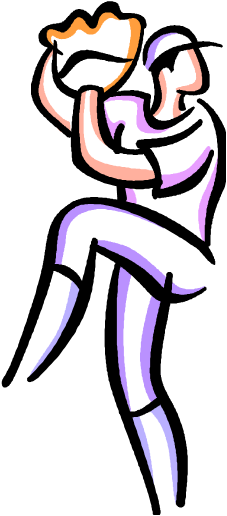[For my non-US readers: In the 1992 US presidential campaign, Governor Bill Clinton’s staff coined the phrase “it’s the economy, stupid” to remind themselves of what was most important to voters. It helped them to focus all of their efforts on the most essential determinant of their success.]
As a mentor once told me, all problems are people problems.
 I was reading my local newspaper this morning. In the sports section, there was an article extolling the positive impact that the new pitching coach had had on the professional baseball team in my area. All of the pitchers were suddenly pitching better. More strikes, longer outings and more wins seem to be rule instead of the rare exception that we had enjoyed in past years. What had made the difference, the new pitching coach was asked. Was he emphasizing new techniques or trickier pitches? Maybe he was having all of the pitchers exercise more or differently than before? Perhaps it was not only the pitchers but the also the catchers (who usually decide what kind of pitch – fastball, curve, change up – that the pitcher throws) that had improved?
I was reading my local newspaper this morning. In the sports section, there was an article extolling the positive impact that the new pitching coach had had on the professional baseball team in my area. All of the pitchers were suddenly pitching better. More strikes, longer outings and more wins seem to be rule instead of the rare exception that we had enjoyed in past years. What had made the difference, the new pitching coach was asked. Was he emphasizing new techniques or trickier pitches? Maybe he was having all of the pitchers exercise more or differently than before? Perhaps it was not only the pitchers but the also the catchers (who usually decide what kind of pitch – fastball, curve, change up – that the pitcher throws) that had improved?
Yes, it was all of that he reported to the newspaper. Pitching is complicated but he was nevertheless finding ways to be more effective with the same group that had performed poorly the year before. But, and this was important, something more significant than technical improvements was going on.
Undergirding all of his approaches was the simple truth given to him many years ago by a veteran coach. That coach told him that “pitching was a people business.”
Everything revolved around working more effectively with and through people. The new coach had begun emphasizing relationships, communication, trust and all those other things that help people work together better for a common cause. Obvious, you might think, but it is a simple understanding often ignored by other coaches that are convinced that superior mechanics alone win games.
What about business strategy and competitive intelligence?
Read the rest of this entry
 Coke is a valuable brand. It got that way because many years ago there was a vision for the product, an explicit way to market the vision and scrupulous enforcement of the brand that emerged. Brands are powerful shorthand ways that we assign value to or judge the worth of something. They help us cut through the noisy clutter of life to make simpler decisions. If we are associated with a “good” brand, then we find our pathways smooth and clear. Conversely, few things are harder to overcome than a “bad” brand (if they were still being made, would you consider a Yugo?).
Coke is a valuable brand. It got that way because many years ago there was a vision for the product, an explicit way to market the vision and scrupulous enforcement of the brand that emerged. Brands are powerful shorthand ways that we assign value to or judge the worth of something. They help us cut through the noisy clutter of life to make simpler decisions. If we are associated with a “good” brand, then we find our pathways smooth and clear. Conversely, few things are harder to overcome than a “bad” brand (if they were still being made, would you consider a Yugo?). Eight years ago I was diagnosed with a life threatening condition that required surgery. I understood that the surgery would be quite difficult and so I searched high and low for the right surgeon. The doctor that I found was recommended to me. He was personable and seemed competent. I knew that he had been successful in many surgeries and I expected (hoped) that he would do what was necessary for me.
Eight years ago I was diagnosed with a life threatening condition that required surgery. I understood that the surgery would be quite difficult and so I searched high and low for the right surgeon. The doctor that I found was recommended to me. He was personable and seemed competent. I knew that he had been successful in many surgeries and I expected (hoped) that he would do what was necessary for me.